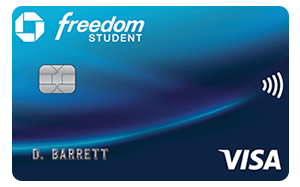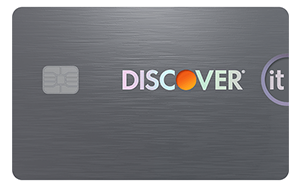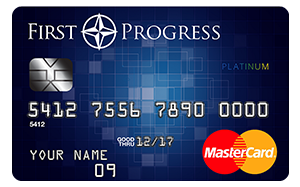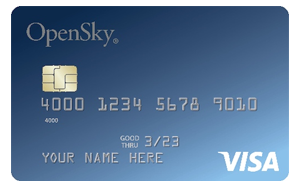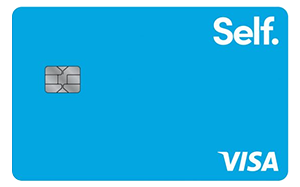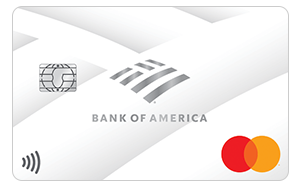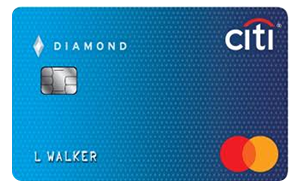Building credit for the first time can be difficult, especially because it can be hard to get credit cards and loans when you’re just starting out. However, the earlier you start to build credit, the better—it’s one of the best things you can do to make life easier for yourself down the line.
To start you off, we’ll walk you through the basics of how credit works and how to make the right choices early on so that you can achieve and maintain excellent credit in the coming years.
Table of Contents
How does credit work?
Credit scores can be traced all the way back to the 1800s, and their purpose has remained largely the same: to provide lenders with a reliable measurement of how likely a borrower is to repay their debts. 1
As someone who’s completely new to credit, you probably won’t have a credit score yet. However, understanding how credit scores work will tell you where to focus your efforts when trying to become scorable and establish good credit.
Factors to focus on when you first start building credit
Five main factors make up your credit score, but they’re not all weighted equally. Here’s a look at what makes up each of these components:
- Payment history: Record of your on-time payments, late payments, and missed payments toward bills and credit accounts.
- Credit utilization: Percentage representing your debt-to-credit ratio (i.e., how much of your available credit you’re using).
- Length of credit history: Your credit age, as determined by how long you’ve had your oldest and newest credit accounts and the average age across all your accounts.
- Credit mix: The variety in the types of credit accounts you have (e.g., revolving accounts and installment loans).
- New credit: A record of how often and how recently you’ve received hard inquiries from applying for new credit accounts like loans and credit cards.
The chart below shows how important each of these factors is in FICO scoring models, which are used in over 90% of lending decisions in the US. 2
How Your FICO Score Is Determined

As you can see from the chart above, your payment history is the most important factor, which means the best thing you can do for your credit is to make sure you always pay your bills on time.
After that, focus on keeping your spending low on your credit cards (which will give you a good score in the Amounts Owed category).
Together, those two factors account for 65% of your credit score. The other factors are of secondary importance and you don’t need to worry about them when just starting out.
However, when you’re a little farther along on your credit-building journey, you should make sure you understand exactly how your credit score is calculated and start paying attention to all five factors.
How to get your first credit score
Contrary to popular belief, you aren’t automatically given a credit score when you turn 18. In fact, although many people begin building credit at 18, you can actually get your first credit score at any age. All you need is some type of information on your credit reports.
FICO and VantageScore have different requirements you need to meet to be considered “scorable.” For example, FICO will require you to have your first credit account for at least 6 months, whereas VantageScore will score you just one month after you open your first account. 3 4
It’s worth noting that you won’t start with a credit score of zero (credit scores don’t go that low). You probably won’t even have the lowest possible credit score of 300 when you start building credit for the first time. Instead, your starting credit score will depend on the information on your credit report., i.e., what you do with your first credit account.
Best ways to start building credit for the first time
To build credit, you’ll need to get positive information added to your credit reports. Here are the three best ways to establish credit as a beginner:
1. Get help from a family member or friend
Many creditors are reluctant to loan money to people who have never used credit before. This is the catch-22 of building credit for the first time: you often need credit to get credit.
Consequently, one of the most common ways of building credit when you have none is to springboard off the good credit of a parent or close friend.
There are two main approaches you can try.
Become an authorized user on someone else’s credit card
If you become an authorized user on someone else’s credit card account, you’ll get to share their line of credit. You won’t be responsible for making payments, and the primary cardholder’s account history will be added to your own credit report.
As a newbie, being an authorized user can boost your credit score by boosting your credit history. As long as the primary cardholder has a good credit score, this will give you the foundation you need to further build credit by opening new credit accounts in your own name once your score has had time to improve.
As an added bonus, you can become an authorized user even if you aren’t old enough to get your own credit card. You can use this method to build credit as a teenager, which otherwise isn’t possible.
Get a cosigner for your credit card or loan
Getting someone to cosign your credit application might help you overcome your lack of a credit history. In fact, if you’re applying for a credit card before the age of 21 and you’re still financially dependent on your parents, then you’re actually required to have a cosigner under the Credit CARD Act of 2009. 5
When someone cosigns a loan or credit card application, they’re making a legal commitment to repay your debt if you’re unable to. Make sure you ask someone you trust, like a parent. Before applying, also ensure that your bank accepts cosigners for first-time credit card applications.
Can you build credit with just a bank account?
No, you can’t build credit with just a bank account and no credit cards or loans. Credit scores reflect how you manage your debts, not how much money you have. Unlike credit accounts, savings and checking accounts won’t help you build credit. This is because your bank won’t report your account activity to Experian, TransUnion, or Equifax, the companies that issue the credit reports that are used to generate your credit scores.
2. Get a first-time credit card
As mentioned, it can be hard to get credit without already having credit, but some credit card companies do offer credit cards for people who are just starting out.
You won’t have access yet to the most exclusive credit cards on the market, but you may have these options to choose from:
- Secured credit cards: Informally known as credit-builder cards, secured cards are designed for people who are new to credit or who have bad credit scores. You’ll have to pay a security deposit and you won’t be able to spend beyond that amount. Secured credit cards are much easier to qualify for than normal (“unsecured”) cards.
- Student credit cards: If you’re a student who’s trying to build credit for the first time, a student credit card could be the perfect solution. To appeal to their target market, these cards often have minimal credit requirements.
- Retail credit cards: Store cards are known for being easier to get than regular credit cards. 6 You usually can’t use these cards everywhere (just at the store or chain you got them from), but store cards are still revolving credit accounts like credit cards, and getting one from your favorite store could be a good first step into the world of credit.
When you’re looking for your first credit card to build credit with, shop around to make sure you’re getting a good credit card APR (a credit card’s APR is its interest rate). Start by exploring the best credit cards for beginners currently on the market:
| Credit Card | Best For | Credit Score | Annual Fee | Welcome Bonus | |
|---|---|---|---|---|---|
| No Credit | 300–669 | $0 | |||
| Rewards | 580–739 | $0 | Cashback match | ||
| Travel | 580–739 | $0 | |||
| Visa | 580–739 | $0 | $50 Bonus | ||
| International Students | 580–739 | $0 | |||
| Credit Card | Best For | Credit Score | Annual Fee | Welcome Bonus | |
|---|---|---|---|---|---|
| Secured | 300–669 | $0 | Cashback Match | ||
| Unsecured (No Deposit) | 300–669 | $39 ($0 for the first year if you set up autopay) | |||
| Beginners | 300–669 | $49 | |||
| Students | 580–739 | $0 | Cashback match | ||
| No Annual Fee | 300–669 | $0 | |||
| High Approval Odds | 300–669 | $35 | |||
| Building Credit | 300–669 | $0 | |||
| Credit Card | Best For | Credit Score | Annual Fee | Welcome Bonus | |
|---|---|---|---|---|---|
| No Credit Overall | 300–669 | $0 | Cashback Match | ||
| Starters | 300–669 | $49 | |||
| Students | 580–739 | $0 | Cashback match | ||
| No Credit Check | 300–669 | $35 | |||
| No Annual Fee | 300–669 | $0 | |||
| Unsecured (No Deposit) | 300–669 | $75 for the first year ($48 after) | |||
| High Credit Limit | 300–669 | $39 ($0 for the first year if you set up autopay) | |||
| Instant Approval | 300–669 | $75–$99 the first year, then $99 annually | |||
| Beginners | 300–669 | $0 | |||
| Credit Card | Best For | Credit Score | Annual Fee | Welcome Bonus | |
|---|---|---|---|---|---|
| Secured Overall | 300–669 | $0 | Cashback Match | ||
| No Credit Check | 300–669 | $35 | |||
| Beginners | 300–669 | $25 | |||
| No Annual Fee | 300–669 | $0 | |||
| Bad Credit | 300–669 | $49 | |||
| Rebuilding Credit | 300–669 | $0 | |||
3. Take out a credit-builder loan
Credit-builder loans are specifically designed to help beginners build positive credit histories. Many banks and credit unions offer these types of loans, and they generally have zero credit requirements.
Financial institutions can afford to give these loans to people with no credit (or bad credit) because they don’t actually give you the money upfront. Instead, when you sign your loan agreement, they lock the money in a special savings account, which you’ll only get access to after you’ve made all your agreed-upon payments.
Your loan will be added to your credit file, and your lender will report each payment you make. If you make all your payments on time, your credit score will improve.
Be careful taking out standard loans to build credit
Getting a secured loan or financing a purchase can help you establish credit as a beginner, but never go into debt just for the sake of building credit. If you do choose to take out a loan that you actually do need, such as a car loan or student loan, make sure you can afford the payments beforehand.
Mistakes to avoid when you start building credit for the first time
If you take advantage of the methods and tools listed above, you’ll be well on your way to building good credit. However, be careful to avoid the following pitfalls:
Making late payments
As you know, your payment history is the single most important factor affecting your credit score. This means that you can quickly build your credit by making on-time payments on your credit cards and loans, but it also means that making even one late payment can be deadly to your score.
If you accidentally overspend on one of your new credit accounts, contact your creditor right away. Your lenders don’t want you to miss payments any more than you do, and they’ll probably be willing to offer you some kind of hardship program or debt management plan to help you pay them back without your account becoming delinquent.
Applying for too many new accounts
Most creditors don’t advertise this, but although there’s technically no limit to how often you can apply for credit cards or loans, every credit application you submit will lower your credit score slightly. This is because credit applications trigger credit checks known as hard inquiries, which take several points off your credit score.
Hard inquiries aren’t usually worth worrying about—the damage usually won’t amount to more than a 5 points and your score will recover after several months. However, when you’re just starting out, every point counts, so be judicious about applying for new credit cards.
How long does it take to build good credit?
You won’t be able to establish a strong credit history immediately, but everybody has to start somewhere.
If you do everything right, your first FICO credit score (which you’ll get after 6 months) will be reasonably good, although not spectacular. To get access to the very best loans and credit cards, you may need to wait a few years, as banks and credit card issuers like to see a long track record of responsible credit use.
As long as you have open accounts on your credit report and you keep them in good standing by paying all your bills and limiting your spending, you can expect your credit score to gradually improve.
Building credit for the first time can be intimidating, but starting your credit journey today will give you the time you need to establish good credit while you’re still young and give you the opportunity to access all the benefits of good credit later in life.
Takeaway: When building credit for the first time, educate yourself on how credit works and take advantage of credit-building tools.
- When building credit as a beginner, focus on paying all your bills on time, limiting your spending, and keeping your credit accounts open.
- To get your first credit score, you’ll need to have information on your credit reports. To get a FICO score, you’ll need to have your first account open for at least 6 months.
- You can get help building credit for the first time by getting a parent or friend to add you as an authorized user to their credit card account or cosign a loan for you.
- You can also start building credit on your own by getting your first credit card or taking out a credit-builder loan.
- It may take a long time to establish good credit, but you’ll eventually succeed as long as you keep your credit accounts open and manage your debts responsibly.




